Alumni Stories No.7 – Ms. Hiroko Morita-Lou
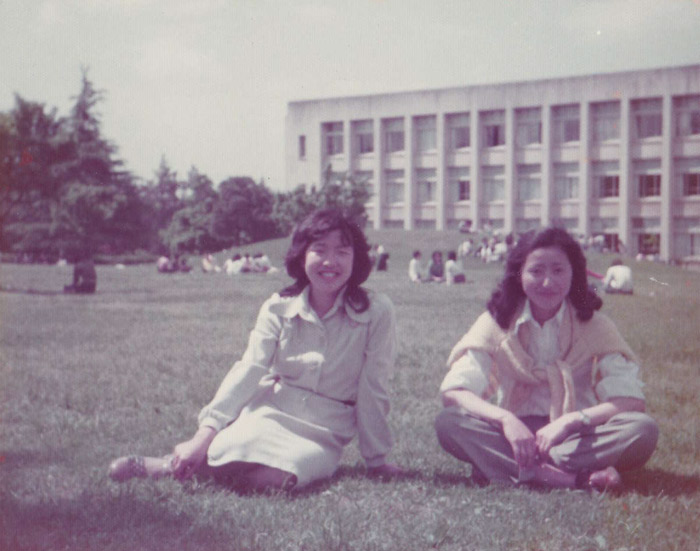
Ms. Hiroko Morita-Lou graduated from ICU in 1977. Having recently retired from her long career at the United Nations, she is busy giving lectures, writing, and advising students in both the U.S. and Japan. She currently resides in Connecticut. We asked her to look back at her time at ICU.
What I Learned at ICU Formed the Basis of My UN Career
I entered ICU as a September student in 1973, returning from New York where I spent over four years of junior and senior high school. The decision to return to Japan for college was to get to know Japan better for my own identity. The ICU September group of students were quite unique with varying levels of Japanese language skills. Unlike the April section mates who intensively studied Freshman English together, the only class we had in common among the Septembers was the first two semesters of physical education.
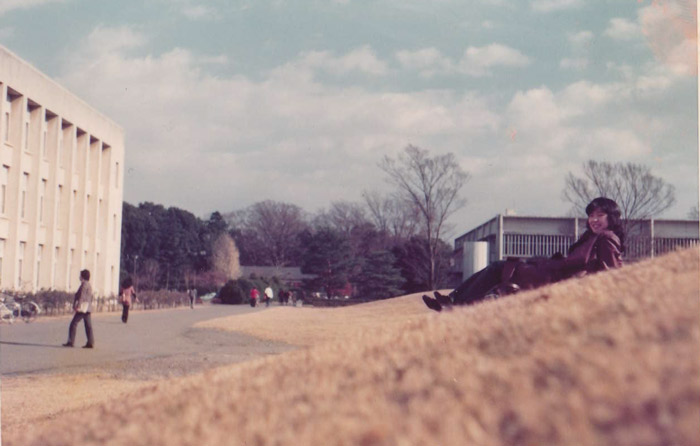
As my parents were still in New York, I entered the Second Women’s Dorm and experienced quite a cultural shock with cleaning and phone duties (there was no cell phone back then), the 10pm curfew, as well as the lack of privacy. My dorm led the female students in the student protest in 1974, objecting to a tuition increase. Eventually, the protesting students occupied the Honkan, piled up chairs in front of the entrance and exit doors and the college closed down for a month. I moved out of the dorm shortly before that.
At ICU, I decided to major in Communications in the Languages Department and took courses with Professors Mitsuko Saito and John Condon, among others. I learned a lot during the intensive simultaneous interpretation class I took for a whole year. The “simul” class gave me the ultimate skills that not only were necessary for interpretation but became handy after I started working at the United Nations. It was a three-hour class every Friday afternoon taught by Professor Saito. She told us to bring chocolates to boost our energy during the breaks. Simultaneous interpretation required focus and concentration like no other. We started by repeating after an English-speaking news reporter on a recorded video, as close as possible to the pace of the reporter. One of the important lessons taught by Professor Saito was to “interpret the message of the speaker,” not the words spoken. Such training came handy at the UN where I serviced many meetings. I was able to take notes at almost the same pace as the speaker, picking up the key messages raised. Even when following discussions in French, it was easier for me to take notes in English.
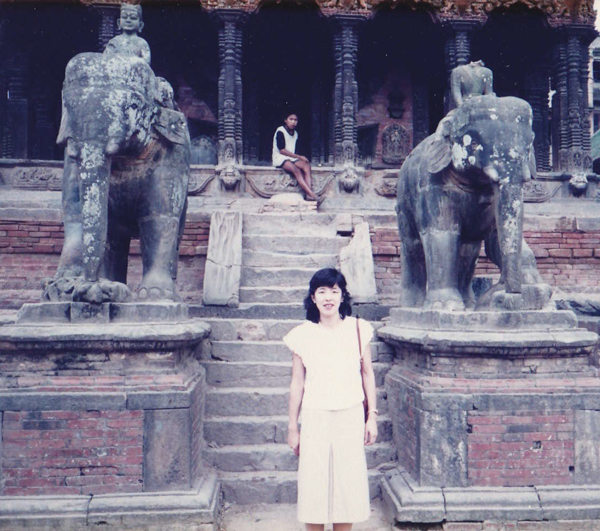
As we learned techniques of simultaneous interpretation, another memorable moment was when each student had to do a mock simultaneous interpretation in front of the class, of a recorded hearing at the Diet. We got critiqued watching the recorded video of our performance. The event that dominated the news at the time was the Lockheed scandal – politicians receiving bribes from the Lockheed company in Seattle, in exchange for purchasing their aircrafts. Whenever I watched the Diet or the U.S. Congressional hearing where politicians in question were called to explain what exactly happened in certain scandalous cases, it felt like dèjà-vu as they denied having any memory of those incidents.
Outside the campus, some of us benefited from a quiet boom of international conferences in Tokyo. Recruiters came to the campus to hire students for the duration of specific conferences. The roles given to students were assisting receptionists, passing messages inside the conference room (no emails or text messaging then), accompanying the sightseeing tours for the participants’ companions, etc. By my senior year, I completed all required courses and started to work almost full time at a small office in Tokyo called “International Conference Organizers”, preparing invitations and lists of participants, running to the post office, accompanying the head to meet the conference organizers, etc. I had no idea that such experiences would be applicable to organizing many meetings as a staff at the UN.
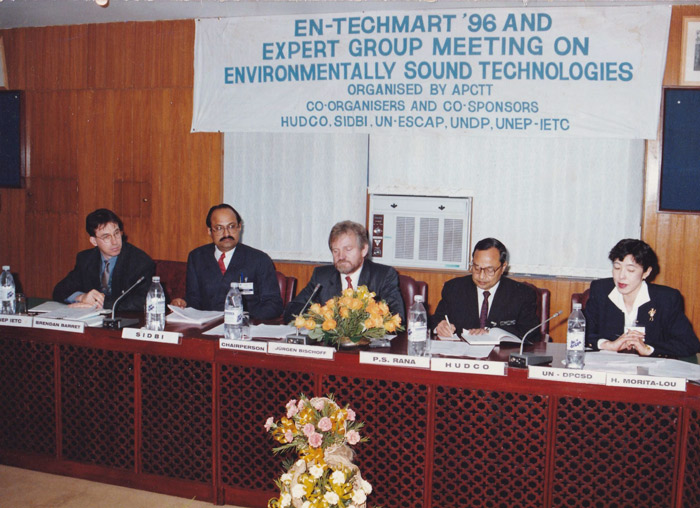
By my junior year, my interests began to shift to social sciences. I wrote my senior thesis on the “Comparison of Diplomatic Negotiation Styles Between the U.S. and Japan”, still under Communications. I was fortunate to have taken some classes taught by Professor Sadako Ogata, a visiting professor from Sophia University at the time. I decided to pursue a Master’s degree in international relations at the University of Denver. It was a total coincidence that Professor Ogata was appointed the first woman Minister at the Japanese Mission to the United Nations, just when I was preparing to go to graduate school. When I expressed interest in seeking a career at the UN, Professor Ogata advised me to focus on studying development issues on which the UN spends the largest proportion of its budget, apply for an internship and eventually the JPO (Junior Professional Officer)*. I flew to NY for interviews at the UNDP Headquarters, a few months before graduation. I left for Haiti that fall as a JPO. Two years working and living in impoverished Haiti was an eye-opening experience that stayed in the back of my mind throughout the rest of my UN career, dealing with development issues in various offices.
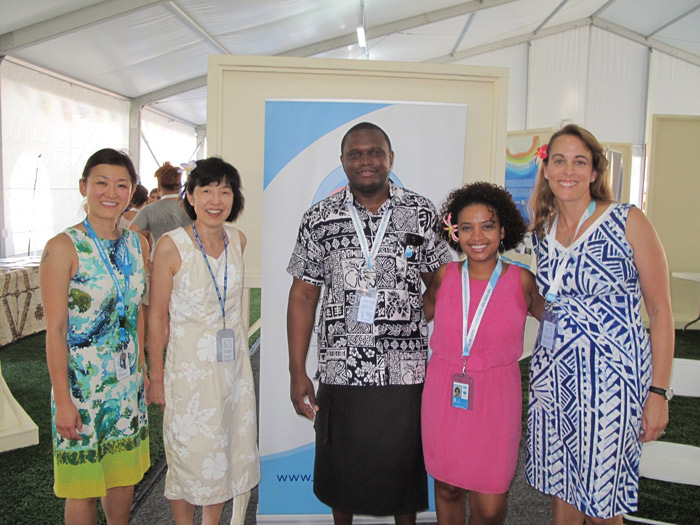
In the 35 years of my career at the UN, I served on different functions under three offices dealing with issues largely related to science and technology for development, sustainable development and small island developing states:. Following intergovernmental negotiations at regional, inter-regional and global processes, had been exciting, especially for major UN conferences, including the Johannesburg Summit on Sustainable Development in 2002, the Rio+10 in 2012 and the Samoa Conference on Small Island Developing States (SIDS) in 2014. The projects I managed made the connection between what were agreed at the international level and actions on the ground. An example would be a newly launched joint Master’s program on sustainable development for the University Consortium of Small Island States, which allowed students from seven national and regional universities in the Caribbean, the South Pacific and Indian Oceans and Mediterranean to access a pool of online courses offered by different member universities while attending classes on their home campuses.
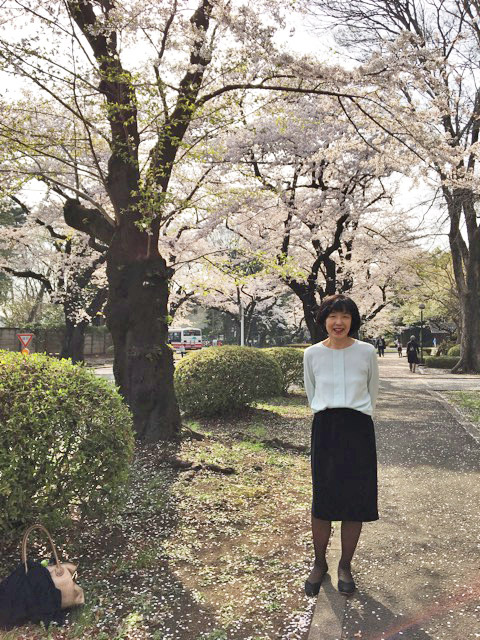
It had challenges but also rewards as I continued working with demanding responsibilities that involved a lot of travelling – it totalled 57 countries, while raising three children. Soon after I retired from the UN, I started to work on a book about the experiences of being a UN mom, which was published in 2017, which opened up more opportunities for lecturing and writing
*Junior Professional Officers (JPO) are recruited under bilateral agreements between the UN and donor countries, and are financed by the latter.
Thank you, Hiroko!



